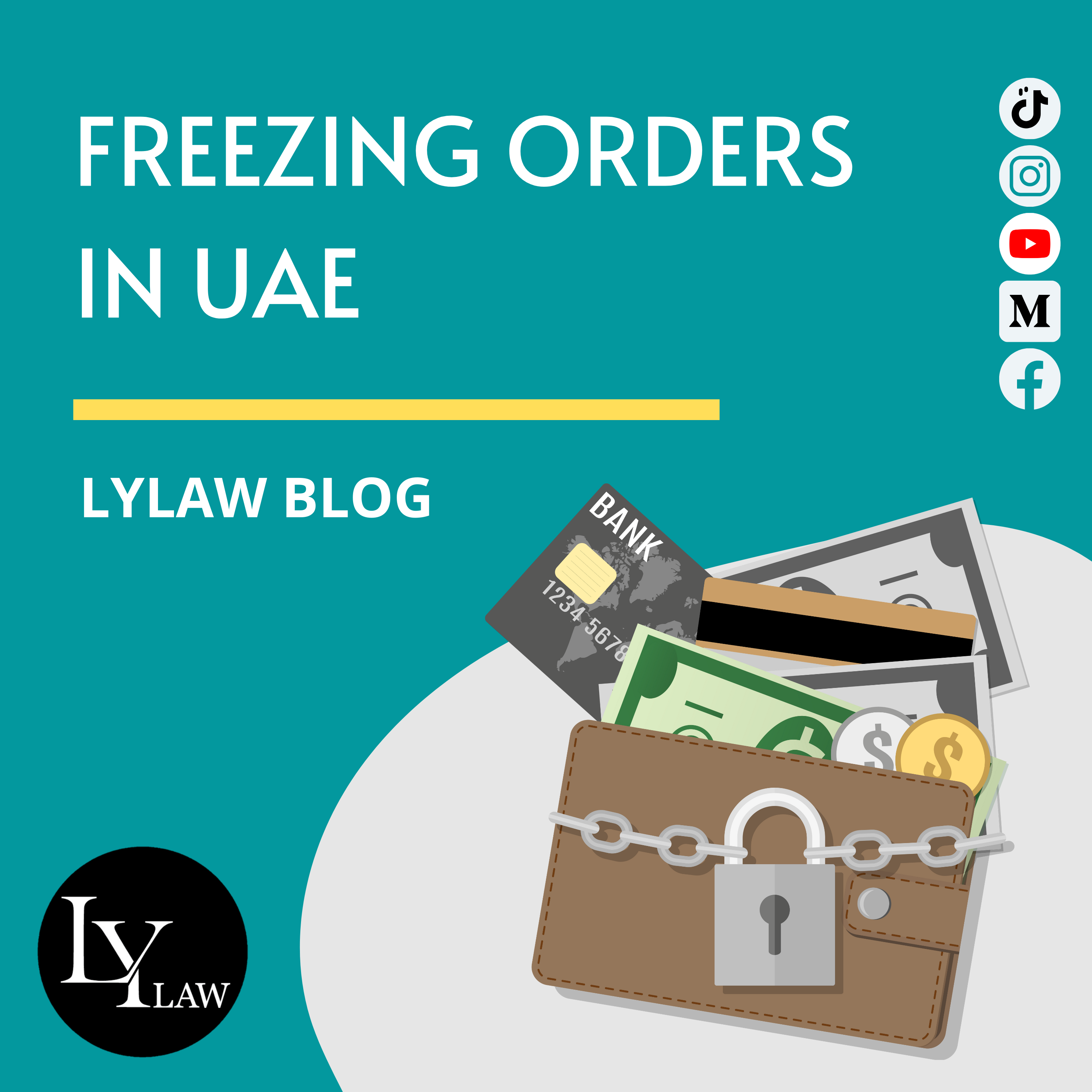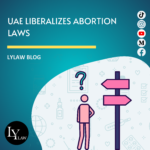
Freezing orders, more commonly known as asset freezing orders or Mareva injunctions, are powerful invidious judicial tools employed to prevent defendants from dissipating their assets. The present guide will give a comprehensive overview of the freezing orders with a focus on their application under the UAE’s legal system, including the Dubai Courts, DIFC Courts, and ADGM Courts.
WHAT ARE FREEZING ORDERS?
Freezing orders are a form of interim relief or injunction that stops a defendant from disposing of, dealing with, or moving their assets for a specific period. The major purpose of a freezing order is the preservation of the value of the defendant’s assets, to ensure that assets exist for the enforcement of the judgment should the claimant achieve a successful judgment.
KEY CHARACTERISTICS
Freezing orders do not take away the defendant’s access to their assets but instead require parties such as banks and land authorities to restrict the defendant’s dealing with those assets. The orders can be made ex parte, without notice to the defendant, and often include a penal notice that stipulates the consequences of non-compliance, including contempt of court, fines, or imprisonment.
REQUIREMENTS FOR APPLICANTS
In applying for a freezing order, applicants must show:
a. Sufficient evidence of a real risk that the defendant might try to dissipate or transfer their assets.
b. Knowledge of the defendant’s assets.
c. A substantive legal claim against the defendant.
FREEZING ORDERS IN DUBAI COURTS
In Dubai Courts, the freezing order equivalent is called a ‘precautionary attachment’ order, which is legislated for under Articles 247-251 of the UAE’s Civil Procedures Law.
Provisions for Precautionary Attachments
The attachment of the defendant’s assets prior to filing a substantive claim is possible to be requested by the claimant. The claimant may attach assets that typically include bank accounts, properties, vehicles, company shares, furniture, and office equipment. Precautionary attachments are available if one owes a debt and there is evidence that the debtor may flee the UAE or conceal its assets.
Process and Conditions
Article 249 permits attachments even in the absence of an enforceable document, as long as the amount of debt is determined. An official copy of the title deed must accompany a request to attach any property. Claimants must file their substantive claim within 8 days of the attachment order issuance, or the attachment is lifted. The attachment order is void if enforcement proceedings do not commence within 30 days of the final judgment.
FREEZING ORDERS IN DIFC COURTS
The DIFC Courts have broad authorities enabling them to issue freezing orders, governed by the DIFC Court Law and DIFC Court Rules.
Key Legislation:
- Dubai Law No. 10 of 2004 empowers the DIFC Courts to make injunction orders.
- The DIFC Courts’ Rules provide for freezing orders on assets both inside and outside of their jurisdiction, without the need for notice to the defendant.
Example of Case: Party A v Party B (2022)
The DIFC Courts issued a freezing order covering all of the defendant’s Dubai assets despite neither party being based in the DIFC, and there being no DIFC proceedings ongoing. The court explained such an order on the basis of there being a “non-trivial risk” of asset dissipation.
Additional Powers:
Free worldwide freezing orders, as well as orders giving access to the defendant’s premises to search for documents and items, can be given by the DIFC Courts. Information orders can also be imposed in most cases on defendants to make disclosures relating to their assets above specific value.
ORDERS OF FREEZING IN ADGM COURTS
As with the DIFC Courts, the ADGM Courts can grant freezing orders against assets outside their jurisdiction and prior to substantive legal proceedings. The ADGM legal framework closely follows the UK Courts’ jurisprudence.
Case Example: ADGM Freezing Order against B.R. Shetty
The ADGM Courts granted a freezing order based on a “good arguable case” and a “real risk of dissipation,” illustrating the application of the principles of English common law.
COMPARATIVE ANALYSIS: DIFC COURTS VS. DUBAI COURTS
Scope of Assets:
- DIFC Courts – Can apply to assets outside DIFC jurisdiction.
- Dubai Courts – Generally limited to assets within Dubai Courts’ jurisdiction.
Indirect Ownership:
- DIFC Courts – Can apply to indirectly owned assets.
- Dubai Courts – Limited to assets registered in defendant’s name.
Disclosure Orders:
- DIFC Courts – Can request alongside freezing orders.
- Dubai Courts – Cannot request an order for disclosure of assets.
Specific Asset Identification:
- DIFC Courts – Not required.
- Dubai Courts – Must identify existing assets.
Multiple Claimants:
- DIFC Courts – Single application possible.
- Dubai Courts – Separate applications required.
Evidential Threshold:
- DIFC Courts – “Good arguable case”.
- Dubai Courts – Potentially higher threshold.
Commencement of Proceedings:
- DIFC Courts – May issue directions for claims.
- Dubai Courts – Must commence substantive proceedings within 8 days.
CONCLUSION
Freezing orders are an essential tool in the protection of the claimant’s interests in preventing defendants from dissipating their assets. The DIFC Courts, with their expansive and flexible jurisdiction, offer a robust mechanism for issuing freezing orders, even in complex international contexts.
While the Dubai Courts also provide a similar remedy through precautionary attachments, the DIFC and ADGM Courts’ alignment with English common law principles often makes them more favorable jurisdictions for securing such orders.
Understanding the nuances and applications of freezing orders across different UAE jurisdictions can significantly impact the strategic decisions made in pursuing legal remedies.
Access the firm’s podcast episode on freezing orders to know more.


